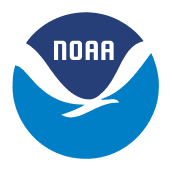Fire Weather Testbed brings local experts together for wildfire research workshop
On June 6, 2025, NOAA’s Global Systems Laboratory (GSL) hosted a workshop led by the National Science Foundation’s Advanced Sensing and Computation for Environmental Decision-making Engine (NSF ASCEND Engine) in Colorado and Wyoming.
The hybrid workshop, with virtual and on-site participation at the Fire Weather Testbed on NOAA’s Boulder campus, brought together principal investigators and stakeholders involved in wildfire preparedness and response. The projects that were presented and discussed focused on three technical areas that the NSF ASCEND Engine prioritizes: advanced sensing, computation, and decision support.

The NSF ASCEND Engine transforms advanced sensing, computation, and AI-driven environmental analytics into scalable, real-world solutions that protect communities and fuel economic growth. The Engine’s ultimate goal is to create an innovation ecosystem to address environmental and socioeconomic concerns, thereby increasing national competitiveness, expanding economic prospects, and fostering long-term resilience and sustainability across the region. This workshop investigated novel and applicable solutions to these challenges by leveraging machine learning and data fusion approaches for wildfire risk mapping and communicating power and energy system vulnerabilities.
Participants included representatives from the University of Colorado Boulder, Colorado School of Mines, National Renewable Energy Laboratory, Xcel Energy, Lockheed Martin, JuliaHub, the Colorado Governor’s Office, Colorado State Forest Service, Colorado Division of Fire Prevention and Control, and Battelle Memorial Institute.
Through events like this, GSL’s Fire Weather Testbed continues to prioritize community engagement and collaboration with various partners, fostering innovative science aimed at achieving a fire-ready nation
Our Mission
Lead research and directed development through the transition of environmental data, models, products, tools, and services to support commerce, protect life and property, and promote a scientifically literate public.
Research Areas
Organizational Excellence, Earth System Prediction, Advanced Technologies, and Decision Support are the foundation to achieving the GSL Grand Challenge: Deliver actionable global storm-scale prediction and environmental information through advanced technologies to serve society.
Global Systems Laboratory

